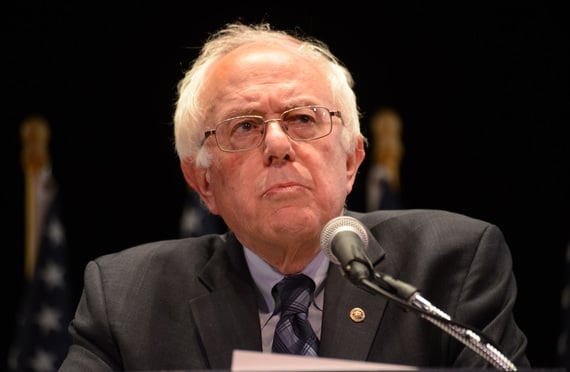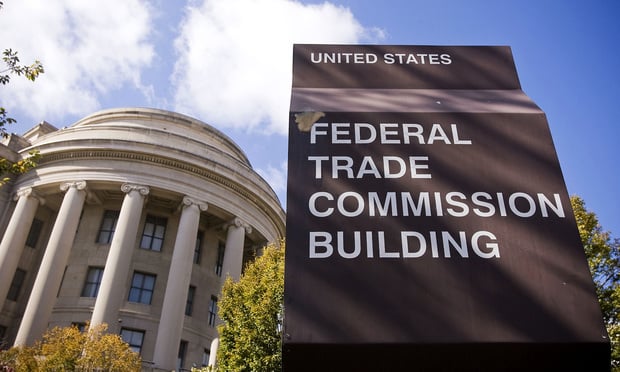 Leah Zallman, lead author of thestudy, said the findings allude to the potentially negativeconsequences that tighter immigration policies could have on thehealth care industry. (Photo: Shutterstock)
Leah Zallman, lead author of thestudy, said the findings allude to the potentially negativeconsequences that tighter immigration policies could have on thehealth care industry. (Photo: Shutterstock)
President Donald Trump has repeatedly condemned U.S. immigration policy, arguing that manyimmigrants pose a threat to the nation and drain U.S. resources. But a study releasedMonday about health insurance challenges the president'sportrayal.
|The studyin the journal Health Affairs found that immigrants covered byprivate health insurance and their employers contributed nearly $25billion more in premiums in 2014 than was spent on their care.Those in the country without legal status contributed nearly $8billion toward the surplus.
|Related: Caregivers (and patients) on the losing end ofTrump immigration policy
|In contrast, U.S.-born enrollees spent nearly $25 billion morethan they paid for in premiums.
|These findings surface as the Trump administration's immigrationpolicies — including a plan to tie migrants' efforts to getpermission for permanent residency to their use of federal benefit programs — have come underscrutiny.
|Earlier studies also found that immigrants contribute more toMedicare than they receive in benefits, but the authors of thisstudy say it is the first to look at the effect in privateinsurance plans.
|Leah Zallman, assistant professor of medicine at Harvard MedicalSchool and lead author of the study, said her findings allude tothe potentially negative consequences that tighter immigrationpolicies could have on the health care industry.
|“I think in today's era … there's so much concern aboutimmigrants and immigration really sort of draining our resources inthe U.S.,” Zallman said. “This really points to the critical rolethat immigrants have in actually subsidizing and maintaining ourcurrent systems.”
|Researchers calculated the financial contributions and expensesof enrollees and their employers using two surveys created by thefederal government. Plans sold on the federal health law'sinsurance exchanges were not included because they “differ fromother private insurance in important ways and are unavailable toundocumented people,” the study authors noted.
|Anyone born outside of the United States was categorized as animmigrant. However, the surveys did not ask non-citizens withprivate coverage about their legal status. Researchers usednational data on undocumented immigrants to estimate how manypeople in the study group illegally resided in the country.
|In 2014, immigrants and their employers contributed $88.7billion in private insurance premiums, but spent only $64 billionfor care, according to the study's findings. Of that group,undocumented immigrants alone paid more than $17 billion to privateinsurers but used only $9.4 billion.
|Native-born consumers paid $616 billion in premiums and receivednearly $641 billion in insurers' payments for care. They alsoconsistently outspent immigrants across all age groups. Amongenrollees 65 and older, the U.S.-born made a net contribution ofnearly $10,000 more toward their care than those born overseas,according to the study.
|The researchers reported that, on average, individual immigrantspaid $1,123 more for premiums in 2014 than they received ininsurance-covered care. U.S. natives instead cost insurers $163 onaverage.
|Leighton Ku, director of the Center for Health Policy Researchat George Washington University who was not involved in the study,said several factors contribute to immigrants' low health careexpenses. The group tends to be healthier and younger when theyarrive in the United States. Cultural and language differences alsohinder them from accessing care.
|The study noted that immigrants' health care expendituresincreased the longer they remained in the country. But it addedthat since their premiums also increased at the same time, theycontinued to make a net contribution to their private healthplans.
|The findings come about a week after the Department of HomelandSecurity proposed redefining how it would determine “public charge,” a term used to describe a personlikely to become dependent on the government for assistance. Theproposal would make it harder for immigrants to live and workpermanently in the U.S. if they receive certain types of federalassistance, such as Medicaid, food stamps and housingsubsidies.
|Trump has vowed to be tough on immigration standards. During hiscampaign, he berated U.S. health expenditures on immigrants,arguing that the U.S. spent $11 billion for care to people who werein the country without authorization, the study's authors note.
|But they point out that earlier research shows that immigrantshave low rates of health care use and spending, compared withnative residents. Their payments to private plans and Medicare inessence prop up care for patients who are U.S.-born, the authorssay.
|A study Zallman publishedearlier showed unauthorized immigrants contributed $35.1billion more to Medicare from 2000 to 2011 than they used inservices.
|Benedic Ippolito, an economist at the American EnterpriseInstitute, cautioned using the study's findings to draw conclusionson a large scale about immigrants and their role in healthinsurance. An estimated 20 percent of immigrants — including nearlyhalf of the undocumented population — are uninsured, according tothe study. Ippolito said the cost of their uncompensated careaffects whether immigrants' financial contributions actually leadto surpluses for health care overall.
|“I would be careful about how much I extrapolate these resultsto a) other parts of the health insurance market and b) evenfurther to what this means for immigration policy,” Ippolito said.“This paper alone does not tell us everything we need to know.”
|Ku echoed the uncertainty. He said he is not certain how theTrump administration's latest actions will affect immigrantsenrolled in private insurance. Having a private plan may suggestthey are employed with a certain income stability. However, ifenough immigrants leave the insurance market, he added, it may havethe unintended consequence of making health plans more expensivefor everyone else.
|“That does have the following implication that to the extentthat we do things to suppress immigrants or make it harder for themto purchase insurance then in that case we may do harm to thecitizens,” he said.
|Kaiser HealthNews (KHN) is a national health policy news service. It is aneditorially independent program of the Henry J. Kaiser Family Foundation whichis not affiliated with Kaiser Permanente.
|Read more:
Complete your profile to continue reading and get FREE access to BenefitsPRO, part of your ALM digital membership.
Your access to unlimited BenefitsPRO content isn’t changing.
Once you are an ALM digital member, you’ll receive:
- Critical BenefitsPRO information including cutting edge post-reform success strategies, access to educational webcasts and videos, resources from industry leaders, and informative Newsletters.
- Exclusive discounts on ALM, BenefitsPRO magazine and BenefitsPRO.com events
- Access to other award-winning ALM websites including ThinkAdvisor.com and Law.com
Already have an account? Sign In
© 2024 ALM Global, LLC, All Rights Reserved. Request academic re-use from www.copyright.com. All other uses, submit a request to [email protected]. For more information visit Asset & Logo Licensing.








